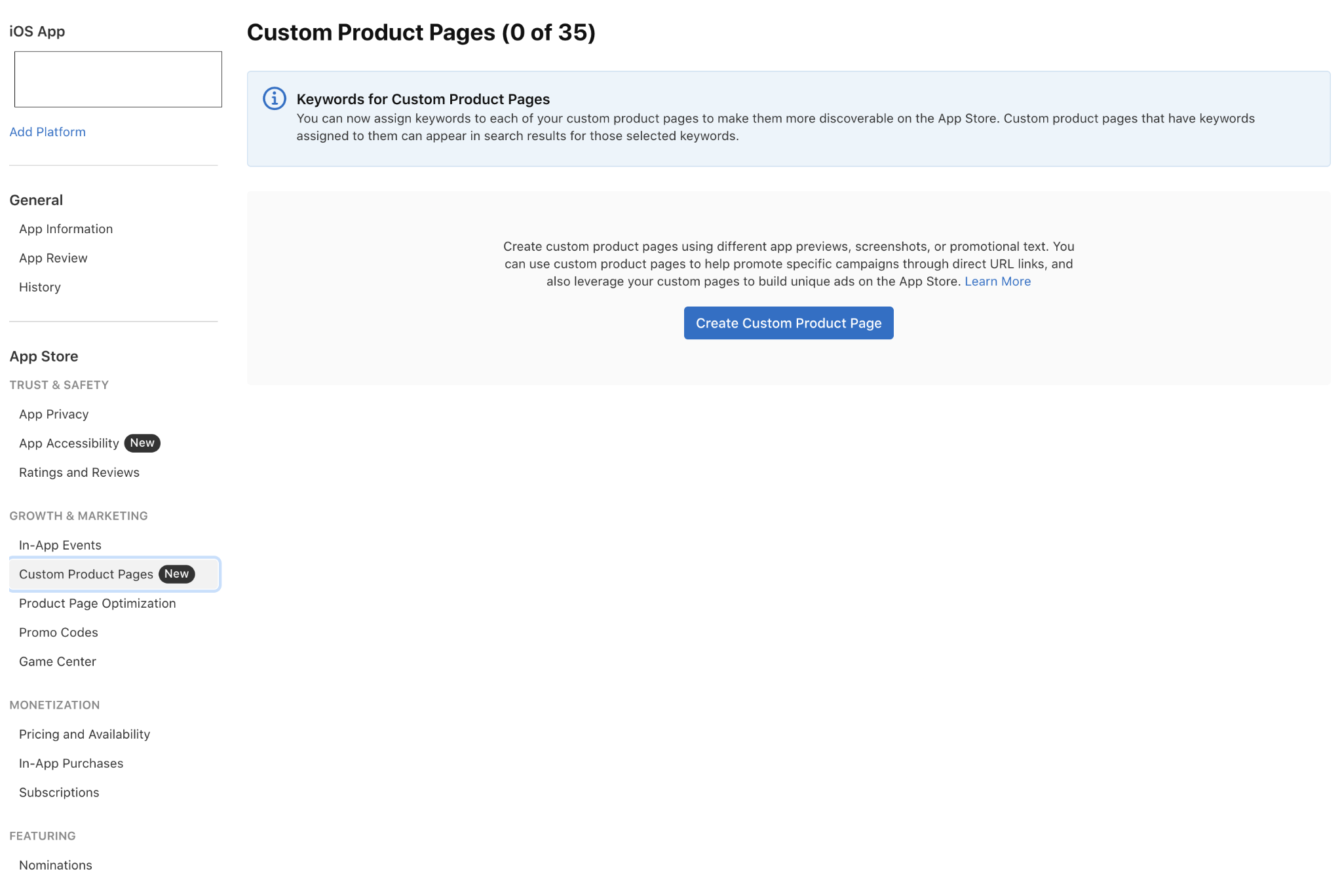Keywords for Custom Product Pages in App Store Connect are now available
On July 30, 2025, Apple officially introduced a feature that many App Store Optimization specialists had been waiting for: the ability to assign keywords to Custom Product Pages (CPP).
From now on, these pages can appear organically in App Store search results, allowing for better alignment of the message with the user’s intent.
Until now, Custom Product Pages (CPPs) were only available through Apple Search Ads campaigns or direct external links. Their potential was therefore limited to paid traffic. This new update increases their importance in App Store Optimization strategies.

Keywords for Custom Product Pages in App Store Connect are now available
What has changed?
According to Apple’s documentation:
- Custom Product Pages can now appear in App Store search results if the app ranks for the keywords assigned to them.
- You can assign several keywords to each CPP.
- App Store Connect now shows search statistics for each CPP separately.
- However, you can’t freely choose the keywords: Apple automatically suggests them from the “keywords” field of the latest app version. In my opinion, this is a major limitation, which is why this change in App Store Optimization is not a game changer.
- Keywords used in the title and subtitle are not eligible for assignment.
- The feature is currently available only in the U.S. and only for the “English (U.S.)” localization. You can preview keywords in other localizations, but you can’t select them.
What does this mean for App Store Optimization?
This change is not revolutionary, but it is a step toward better content personalization in search results.
Custom Product Pages can now serve not only as a conversion tool in ads, but also as a mechanism for more accurately matching messaging to user queries.
The “keywords” field, which was often marginalized until now, is gaining importance. It should now be treated strategically and populated with terms that can trigger specific product page variants.
Recommendations for App Store Optimization specialists:
- Optimize the keywords field — treat it as a separate channel for activating CPPs.
- Create themed pages — for example, a separate CPP for the “Homework Helper” feature, and another for the “image generator.”
- Avoid repeating keywords from the title and subtitle — these phrases are ignored.
- Test and analyze — use App Analytics to monitor the performance of each individual page.
Summary
The ability to assign keywords to CPPs opens up new possibilities for segmentation and personalization on the App Store.
Although the feature is currently limited geographically and linguistically, it’s worth experimenting now and preparing for a broader rollout.
ASO gains another tool that can impact CTR and conversion rates in App Store search.
This is definitely not a game changer, despite what many developers are posting on Twitter and LinkedIn.
A true game changer would be access to organic keyword data in the App Store.
I see Apple’s update more as an addition to ASO. Many developers are unlikely to notice this change, as Custom Product Pages are still not widely used among game and mobile app developers.
App Store Optimization Benchmarks – Apptweak Report 2025
On July 30, 2025, Apple officially introduced a feature that many App Store...

